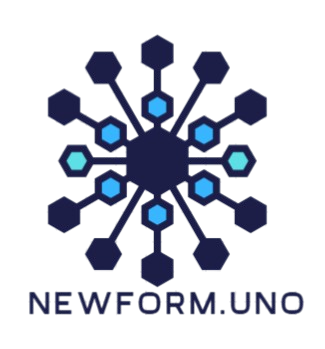Understanding the Myths Surrounding Employment Training
Employment training is often shrouded in various myths and misconceptions that can hinder individuals from pursuing the essential skills necessary for their desired careers. One prevalent misconception is that obtaining a specific certification or degree automatically guarantees a job. While these qualifications can enhance a candidate’s profile, the job market is competitive, and employers often seek practical experience and soft skills in addition to formal education. It is crucial to understand that training programs aim to build competencies rather than serve as a direct ticket to employment.
Another common myth is the belief that online training lacks the quality and rigor of traditional in-person courses. In reality, many reputable institutions offer comprehensive online training programs that incorporate interactive elements, access to industry professionals, and up-to-date resources. The effectiveness of training should not solely be judged by the format but by the curriculum, instructor qualifications, and the support provided to learners. Online training can be equally as valuable, allowing for flexibility and self-paced learning that fits various lifestyles.
Furthermore, some individuals may think that training is only necessary for those entering new fields. However, continuous professional development is vital in a rapidly evolving job market. Advances in technology and shifts in industry standards necessitate ongoing training to remain competitive and relevant. By embracing the concept of lifelong learning, job seekers position themselves for greater employment opportunities and career advancement.
Dispelling these myths is essential for individuals seeking to improve their employability. Understanding the realities of employment training underscores its importance in developing a robust skillset that meets the demands of today’s labor market. Pursuing effective training can empower individuals by equipping them with the tools needed to succeed in their chosen careers.
Evaluating Training Programs: What to Look For
When assessing training programs, several key factors can significantly influence their effectiveness and alignment with career goals. One of the first aspects to consider is the program’s accreditation. Accreditation serves as a quality assurance indicator, ensuring that the training meets industry standards and is recognized by employers. This validation is crucial, as it not only reflects the credibility of the curriculum but also enhances the participant’s resume, potentially making them a more attractive candidate in the job market.
Another vital consideration is the qualifications of the instructors. Well-trained and experienced instructors bring a wealth of knowledge and practical insights into the classroom. Their professional backgrounds, teaching methodologies, and ability to engage with students can greatly impact the learning experience. Researching their credentials and past professional experiences can give prospective trainees confidence in the program’s ability to deliver relevant skills and insights applicable in real-world settings.
Success rates of past participants serve as a crucial metric for evaluating a training program. These statistics often provide insight into how effectively the program prepares individuals for employment in specific industries. Programs that boast high placement rates or testimonials from successful alumni indicate a strong track record of equipping participants with the skills necessary to thrive in their chosen fields.
In addition to these factors, it is essential to assess the extent of hands-on experience and mentorship opportunities provided by the program. Practical experience allows trainees to apply theoretical knowledge in real-life scenarios, which enhances their learning and builds confidence. Furthermore, access to mentors can guide participants through their professional journeys, offering valuable advice and networking opportunities. Networking is an often overlooked element; programs that foster connections within the industry not only enhance learning but also help in securing job placements after completion. Evaluating training programs with these criteria in mind will significantly aid individuals in selecting a pathway that aligns with their employment ambitions and meets industry standards.
The Importance of Tailored Training for Specific Careers
In today’s rapidly changing job market, the significance of tailored training programs cannot be overstated. As industries evolve, the demand for specialized skill sets becomes paramount. Generalized training often fails to equip individuals with the specific competencies required in particular career paths, leading to a disconnect between training outcomes and job market expectations. This mismatch not only hampers the employability of individuals but also poses challenges for employers seeking skilled professionals.
For instance, in the technology sector, positions such as software developers or data analysts require a deep understanding of programming languages and analytical tools. A generalized training program may provide a superficial overview of technology but will not impart the in-depth knowledge necessary to excel in these roles. Consequently, individuals may find themselves unprepared for the intricacies of their jobs, which can lead to job dissatisfaction and increased turnover rates.
Similarly, in healthcare, specific roles such as nursing or medical technology demand rigorous, specialized education and training. Nursing programs must prioritize clinical skills and patient care techniques, while medical technologists require hands-on experience with sophisticated laboratory equipment. Tailored training ensures that professionals in these fields are ready to meet the challenges of their roles directly, thus enhancing the quality of care and efficiency within the healthcare system.
Furthermore, the need for customized training extends to emerging fields such as renewable energy, where professionals must be trained in specialized methodologies and technologies unique to the industry. By pursuing targeted training that aligns with their career aspirations, individuals can enhance their employability and career progression while simultaneously fulfilling industry demands.
Ultimately, investing in tailored training programs that cater to specific careers not only benefits job seekers but also supports the overall growth and sustainability of various industries.
Real Stories: Successful Transitions Through Honest Training
Honest training programs have proven to be transformative for many individuals seeking to enhance their career prospects. Take the case of Sarah, a single mother who, after losing her job due to company downsizing, found herself at a crossroads. With limited skills in the digital economy, she enrolled in a community honest training course focused on technology and online marketing. Over the course of six months, Sarah acquired critical skills such as social media management and data analysis. Today, she works as a digital marketing specialist, earning a salary that allows her to support her family comfortably.
Similarly, James, a former factory worker, transitioned to the information technology sector through a specialized training program. Despite initial doubts about his ability to succeed in a field dominated by younger, tech-savvy individuals, James committed to the curriculum. Through hands-on projects and mentorship opportunities offered by the program, he developed his coding skills and gained confidence in his abilities. Now, he is a software engineer at a reputable tech company, demonstrating that age and background need not be barriers to success.
Another inspiring example is Maria, who faced significant challenges in her journey. A recent immigrant from Argentina, she struggled with language barriers and lacked formal credentials in her new country. After participating in an honest training initiative designed for newcomers, Maria not only improved her English skills but also learned the intricacies of business administration. Armed with both hard and soft skills, she secured a position as an office manager and has since pioneered initiatives that foster a more inclusive workplace.
These stories underscore the power of honest training in facilitating meaningful employment opportunities for individuals from diverse backgrounds. Through their commitment to personal and professional development, they have turned challenging circumstances into remarkable achievements, serving as motivation for others considering similar paths.


No responses yet